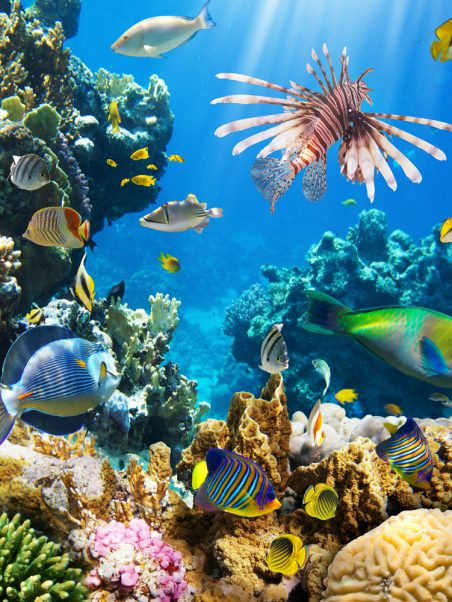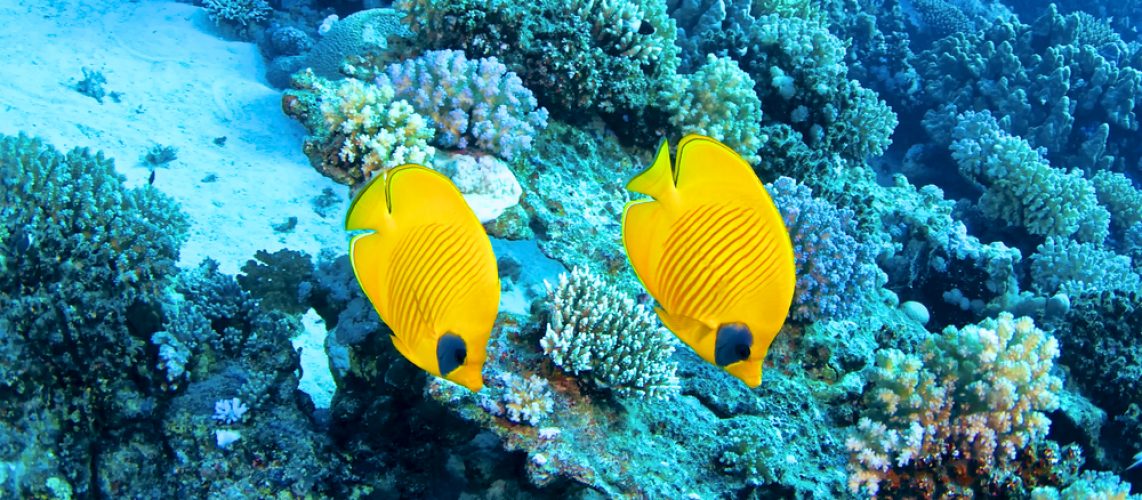Some coral species are being studied to better understand calcification or the spread of disease, while others are being studied for their molecules that protect against sunlight or aging. Corals are the basis of many research projects to find tomorrow’s drugs or cosmetics or to understand how certain diseases are formed.
Coral reefs have an important ecological role. Often in waters that are not very rich in phytoplankton, the source of the marine food chain, they offer real oases of life in the middle of the oceanic desert. They also provide an ideal natural barrier against cyclones, storms and erosion as they absorb the power of the waves.
Coral reefs: an oasis of life
Although they cover barely 0. 2% of the ocean’s surface, coral reefs are home to 30% of marine biodiversity! For fish and other marine animals, corals are real shelters against predators, but also a reproduction and nursery area for many species. They are the essential foundation of marine life in the tropics.
Coral reefs provide direct sustenance to 500 million people worldwide through fishing, and reefs protect coastlines more effectively than any man-made structure from swells and tsunamis.
Read more:
- Coral reefs by Jean Jaubert, marine biologist and former director of the Oceanographic Museum

A major asset for tourism
They are a major tourist attraction and generate a significant part of the economic income of the tropical regions where they are found. Annual net profits of several million or even billion euros per year. Australia, Indonesia, the Philippines, more than a hundred countries benefit from this ” reef tourism “.
Medical Perspectives
Humans and corals have a common genetic heritage. Studying coral and the molecules they produce offers many prospects for human and animal health. The genome, the genetic material of the Acropora coral, has 48% correspondence with that of a human being. While the latter shares only 8% of correspondences with Drosophila, a fly used by laboratories as a model for genetic work! This represents incredible prospects for medical research!
Read more:
- Coral reefs by Jean Jaubert, marine biologist and former director of the Oceanographic Museum
- Why don’t corals get sunburned? by John Malcolm Shick, Professor of Zoology and Oceanography
- Why don’t Corals Get sunburned? by John Malcolm Shick, Professor of Zoology and Oceanography
- The Institute’s coral sheets







